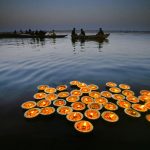Views: 1,491
KAICIID: A Year in Review
2017 has been an eventful year, and in many ways, a difficult one worldwide. At the same time, we are proud to look back at a year where we fulfilled our mandate of promoting interreligious and intercultural dialogue around the world, with the help of some very inspiring religious leaders, experts and organizations. We invite you to look back on the year with us, and explore some of our projects, programmes and events.
Text, Photo, Info Courtesy : http://www.kaiciid.org/
 | | The year began with a meeting of over 100 key actors from diverse Nigerian communities, both Christian and Muslim, working to find common ground to build and support a platform for interreligious dialogue in Nigeria. Speaking at the opening in a speech that made headlines, the Sultan of Sokoto, Alhaji Sa’ad Abubakar III, the main spiritual leader of the Muslim communities in Nigeria, declared that Nigerian Muslims and Christians can live in peace only if they resolve to stand for peace and unite against hate preachers, who are enemies of peace. |
|
| In February, we expanded the KAICIID Fellows Programme to the Arab region.The KAICIID Fellows Programme is a training programme that connects interreligious dialogue (IRD) practitioners all over the world and supports them with dialogue training and introduces them to the international network of IRD practitioners. |
|
|
| In March, we completed the training of a team of dialogue facilitators as part of the Vienna Dialogue Facilitators Pilot project. The KAICIID dialogue facilitators are Austrian women with multicultural backgrounds who will be leading dialogue sessions among asylum seekers, recognised refugees and members of the host communities about integration-related themes. |
|
|
| Representatives of diverse religious organizations in Myanmar came together with their counterparts in civil society organizations in a powerful demonstration of interreligious solidarity and cohesion at a KAICIID-supported event in Yangon, Myanmar, to mark the United Nations “International Day of Peace” (21 September). |
|
|
| In November, we launched the KAICIID Dialogue Knowledge Hub, online database of resources, publications, and contact directories on interreligious dialogue. |
|
|
| The year ended with a series of high-level events, in Dakar, Senegal, bringing together religious leaders from the Central African Republic, in Bangkok, Thailand, in partnership with the OIC, in Vienna, Austria, exploring, with the European Commission, how we can support young refugees better integrate into their host communities. |
|
Text, Photo, Info Courtesy : http://www.kaiciid.org/


































